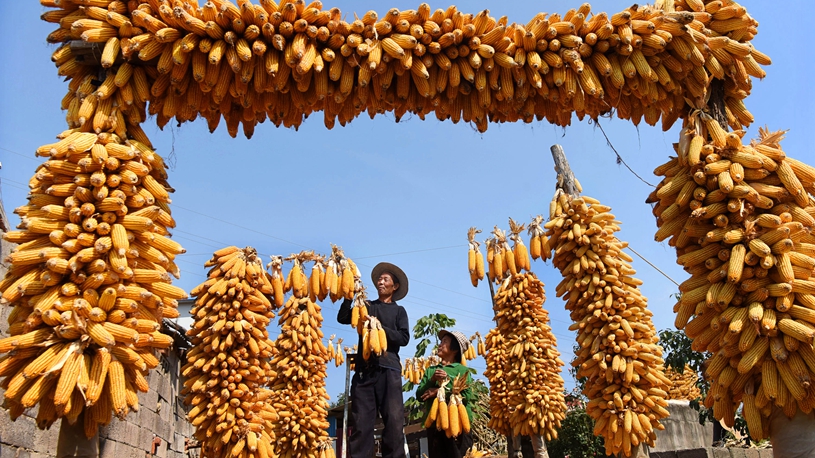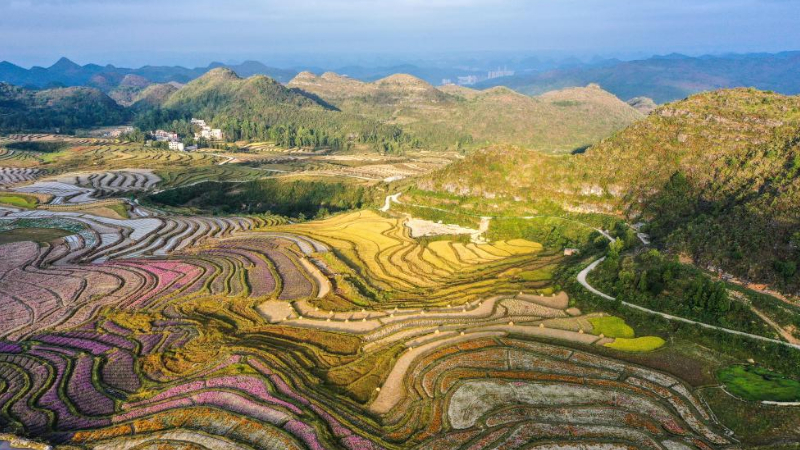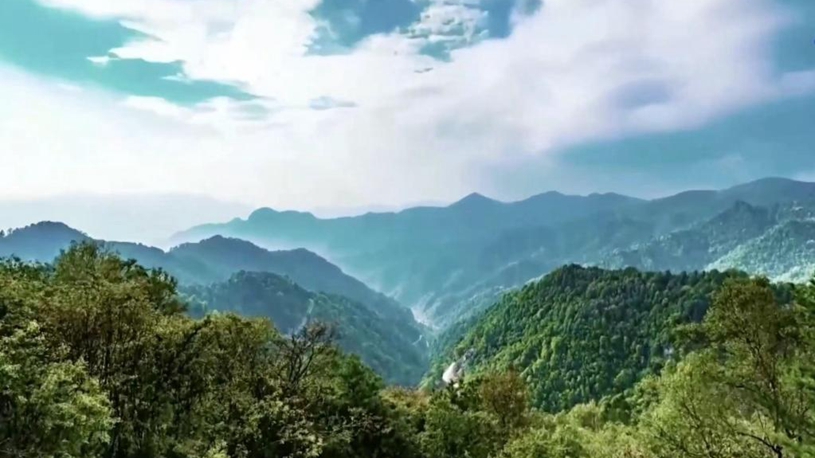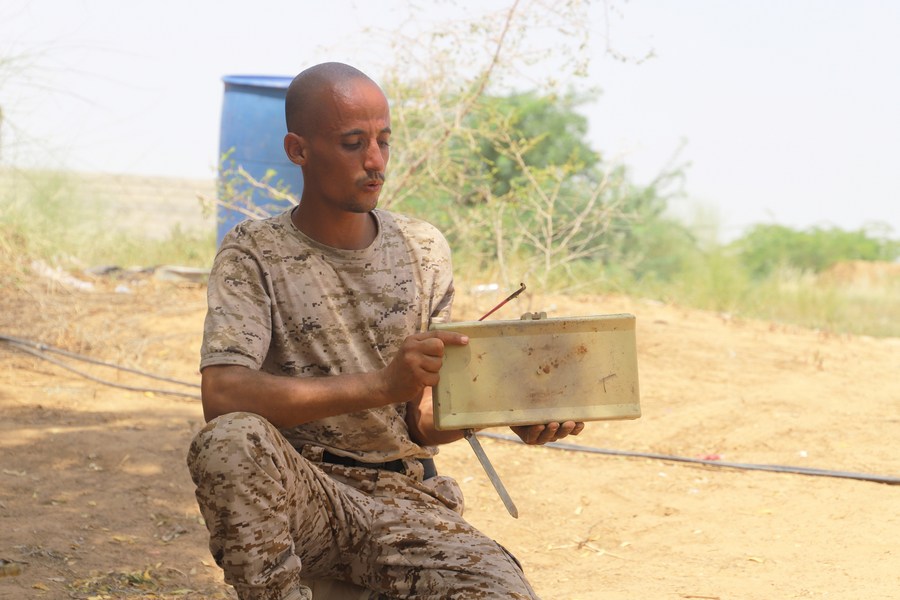
A soldier of a demining team shows a landmine excavated in Abs district, Hajjah Province, northern Yemen, on Oct. 7, 2022. (Photo by Mohammed Al-Wafi/Xinhua)
"It's either starvation or trying our luck in a death trap," a Yemeni resident said of his life threatened by landmines.
HAJJAH, Yemen, Oct. 13 (Xinhua) -- A demining squad had been toiling under the sun for days on a pasture in Yemen's northern province of Hajjah, trying to clear the land for nearby villagers.
The pasture, which covers about 19 square km in the Abs district, is a mix of desert and drought-resistant shrubs, not particularly appealing for grazing. But for hundreds of families living in the nearby Bani Hassan village, this land is all they could rely on to secure food and income.
The Abs district was once a frontline of Yemen's deadly civil war. After the government forces recaptured it from the Houthis in mid-2019, many villagers came back only to find their houses, schools, and roads in ruins.
"When we came back, we were not surprised to find that our houses were destroyed, because there was a war and this was expected," said Mohammed Hassan, a resident of the Bani Hassan village. "But soon we found that our land, roads, and even villages were dotted with landmines. This is much worse."
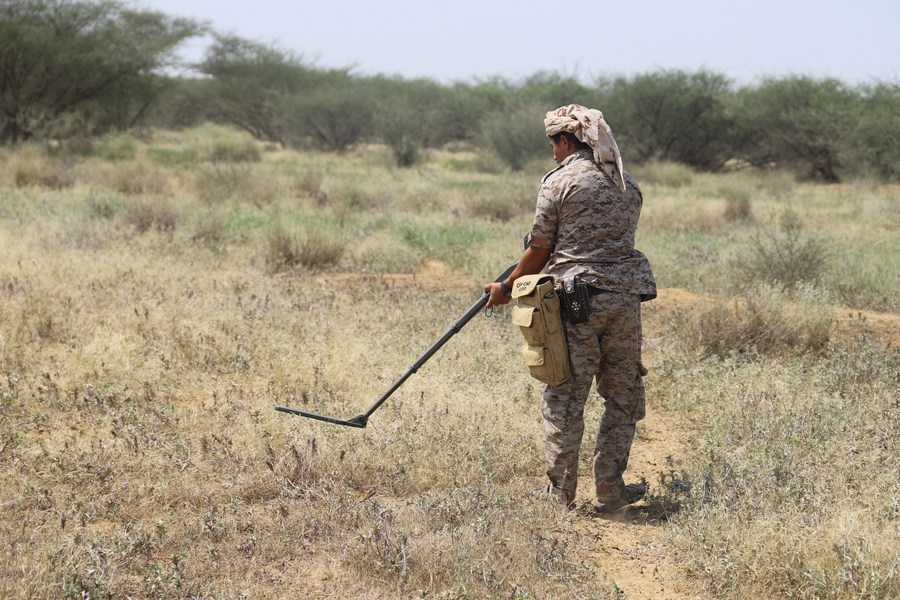
A soldier of a demining team uses a landmine detector to clear a pasture in Abs district, Hajjah Province, northern Yemen, on Oct. 7, 2022. (Photo by Mohammed Al-Wafi/Xinhua)
Landmines are a hidden and hazardous vestige of the cruel conflicts in Hajjah, where thousands of families have been trying to unburden themselves from the plight of war and start a new life from the wreckage.
Thousands of people, mostly children, fell victim to these insidious and lethal weapons while walking on pastures, farms, roads, or even around schools in the government-held province.
Ahmed Sofan, an officer of the demining team, said that so far they have removed more than 4,000 landmines from this area.
"The removed mines included anti-tank mines, anti-personnel mines, and other types of explosive devices made from plastic and camouflaged in the shape and color of small and medium rocks. They were very hard to detect," Sofan said, adding that "the work is continuing."
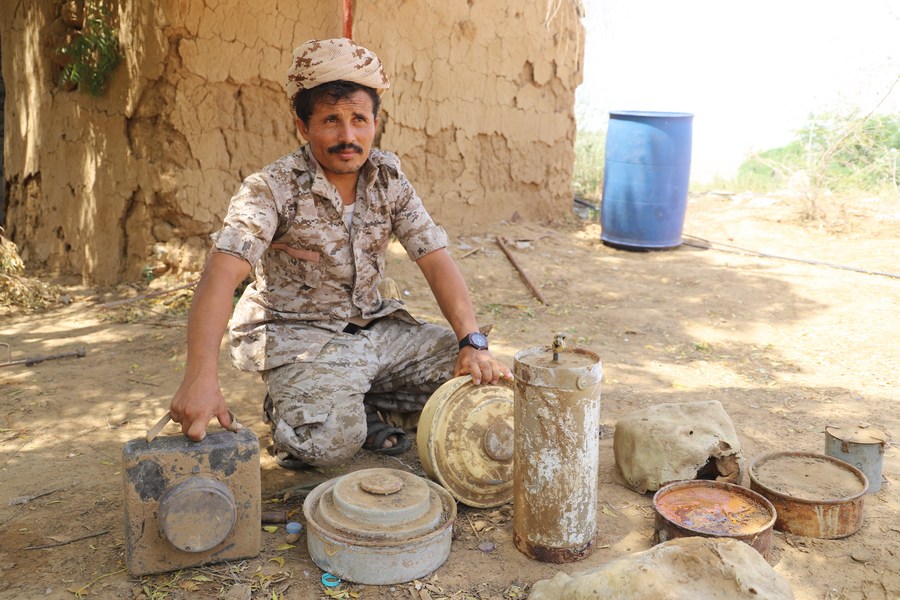
A soldier of a demining team shows the landmines excavated in Abs district, Hajjah Province, northern Yemen, on Oct. 7, 2022. (Photo by Mohammed Al-Wafi/Xinhua)
The Saudi Project for Landmine Clearance in Yemen (Masam) estimated that over 1 million landmines have been laid since the outbreak of the civil war in late 2014, when the Houthi group took control of several northern provinces and forced the Saudi-backed Yemeni government out of the capital, Sanaa.
The Masam project claimed to have removed over 360,000 mines across Yemen since 2018, adding that 33 deminers were killed and more than 42 were injured during demining operations.
The civilian casualties are much higher. Landmines, unexploded bombs, and other explosive remnants in Yemen caused 338 civilian casualties in 2021, including 129 fatalities, according to the UN-affiliated Civilian Impact Monitoring Project.
Ibrahim Kadish, another farmer at the Bani Hassan village, said he lost 12 sheep in a mine explosion while he was grazing them in the area several weeks ago.
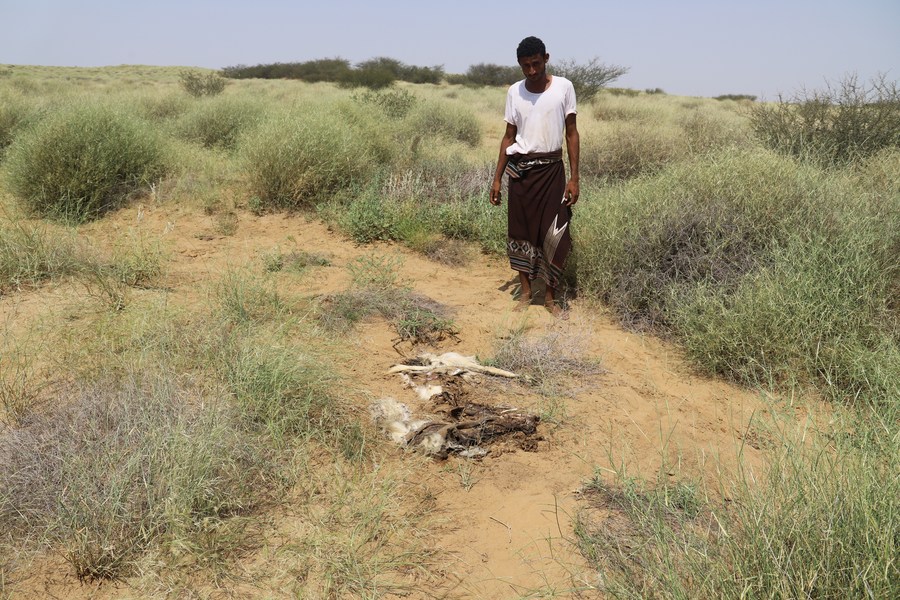
A Yemeni farmer stands next to the carcass of his sheep killed by a landmine explosion in Abs district, Hajjah Province, northern Yemen, on Oct. 7, 2022. (Photo by Mohammed Al-Wafi/Xinhua)
"Landmines are threatening our lives everywhere, preventing us from herding sheep and cultivating the land. This exacerbated our suffering as economic conditions deteriorated during the ongoing civil war," Kadish said, standing next to the deep crater of the explosion, where the carcasses of his dead sheep were half buried in the dirt.
"Now I always let my sheep or cattle walk ahead of me when I graze them," Kadish said.
Hassan said that six of his neighbors, including three children, had their hands and feet amputated in mine explosions when they were herding sheep.
"We know this place is dangerous. But we have to feed ourselves. It's either starvation or trying our luck in a death trap," Hassan said. ■




